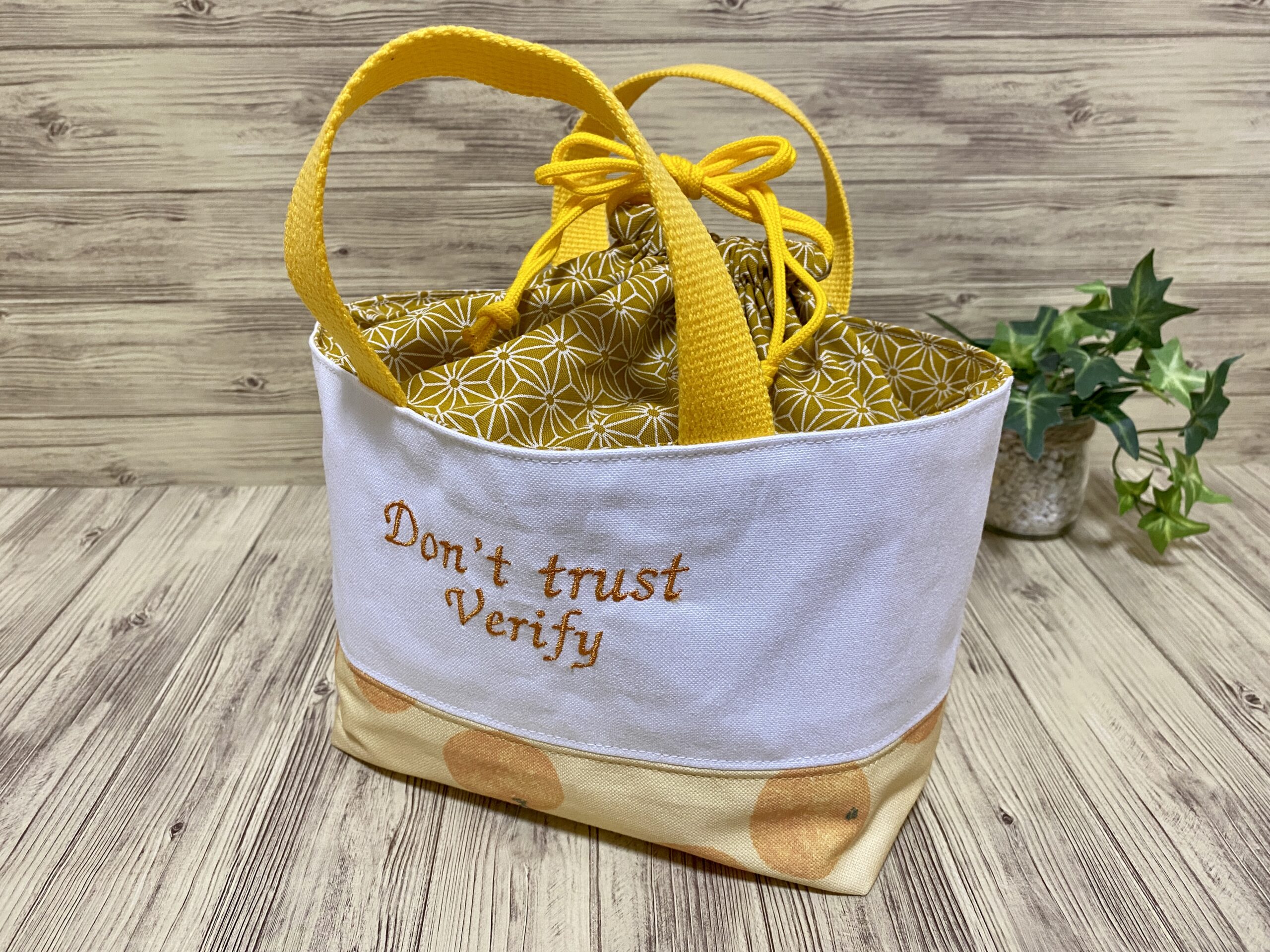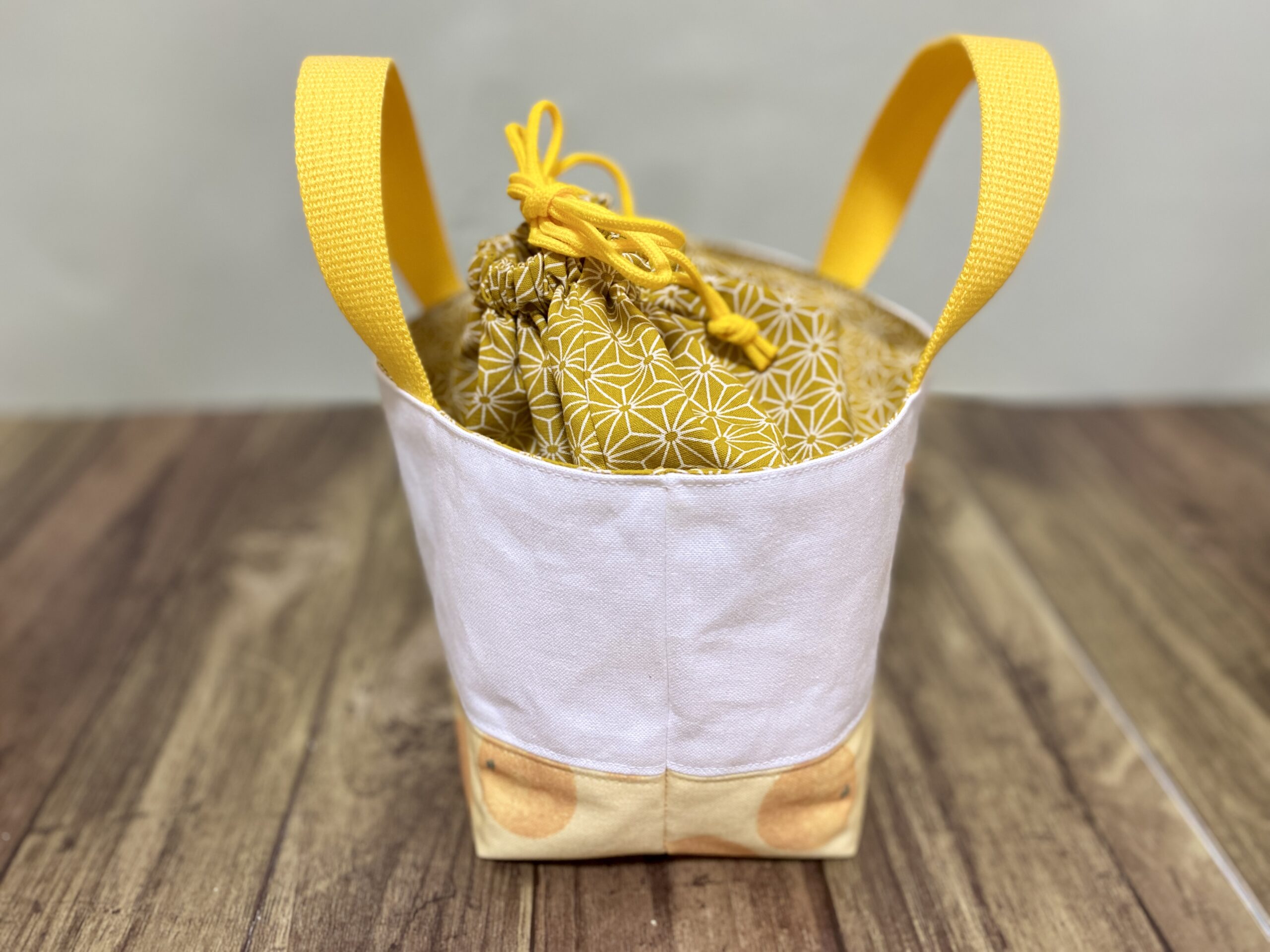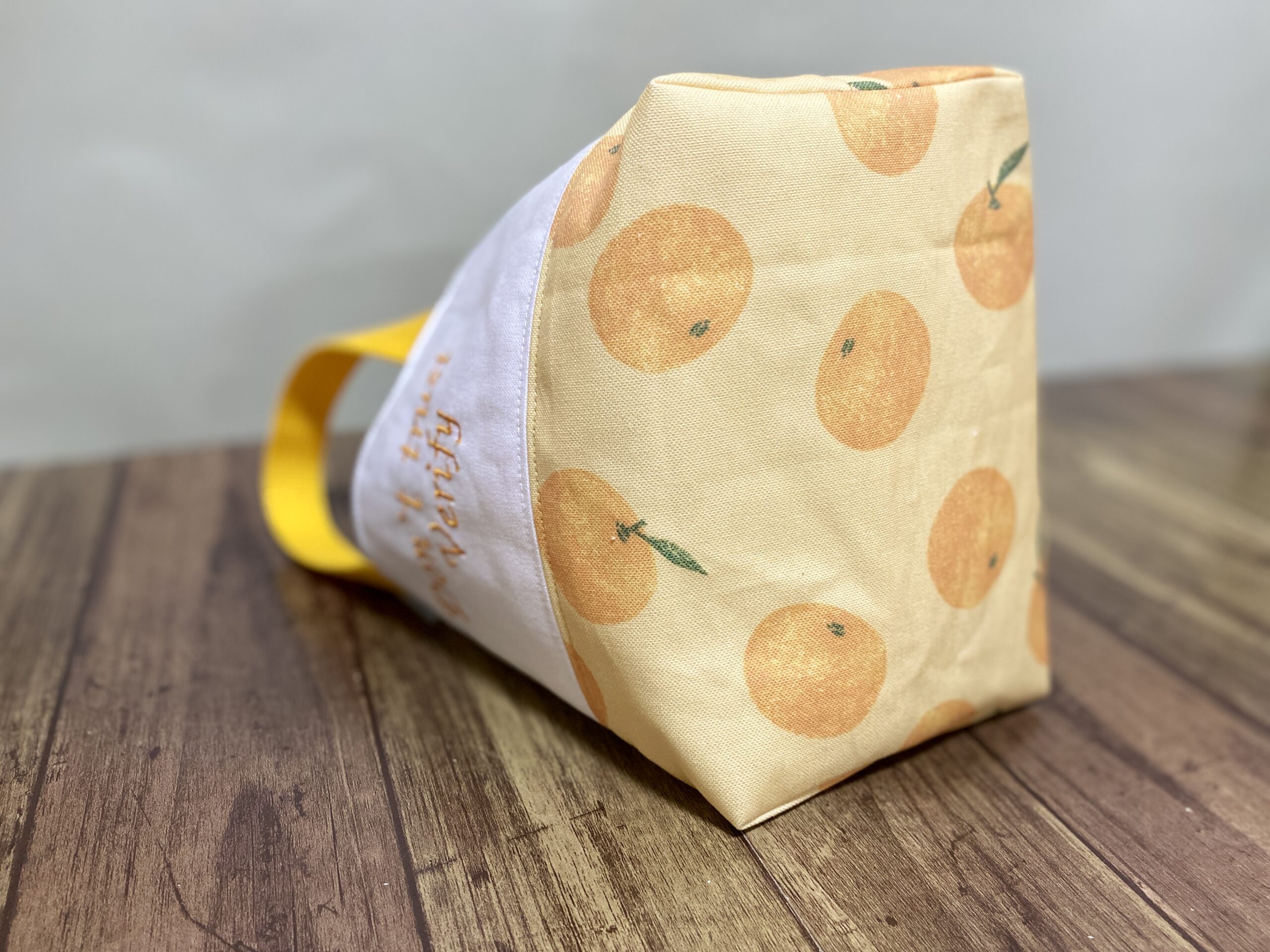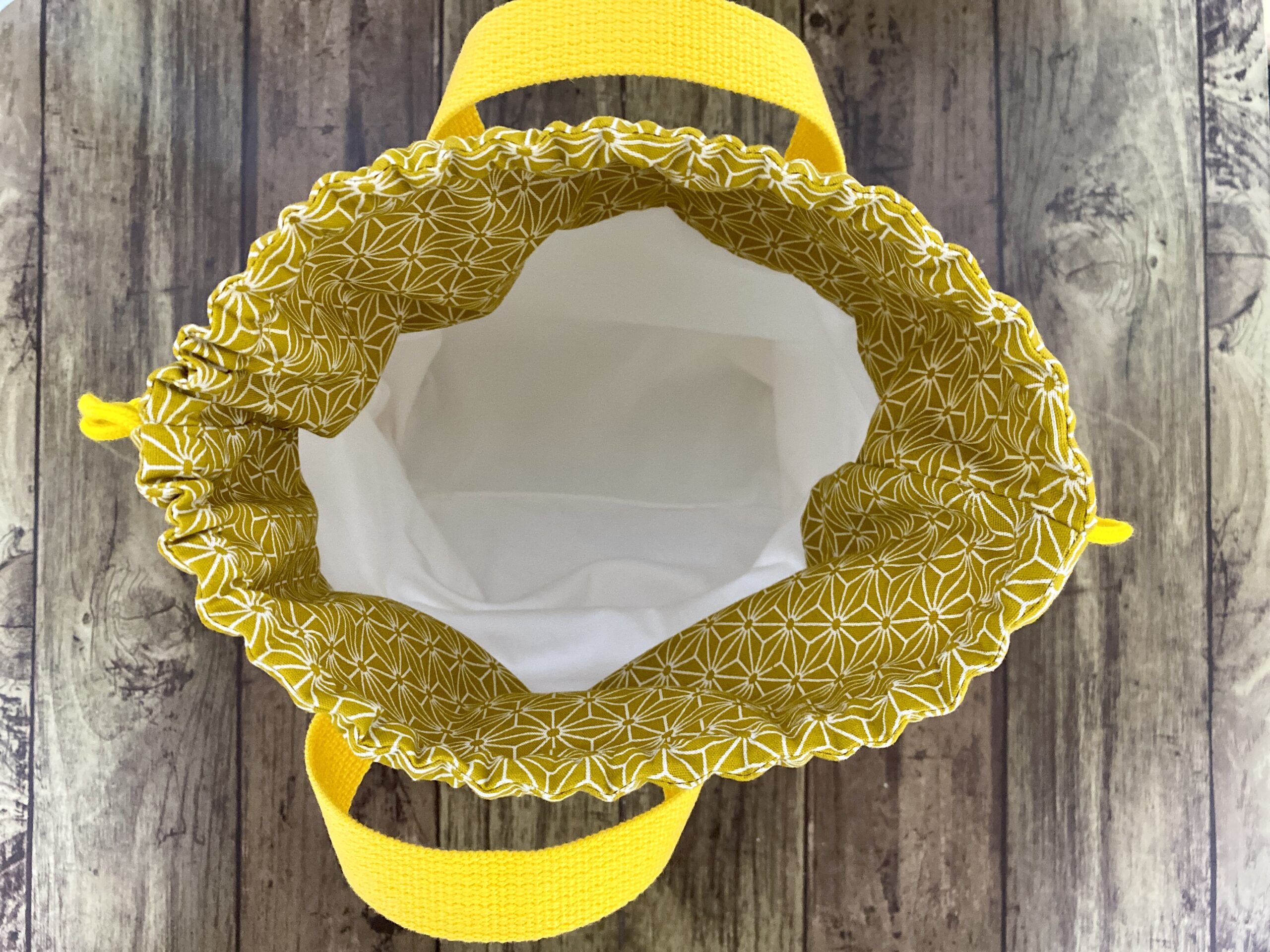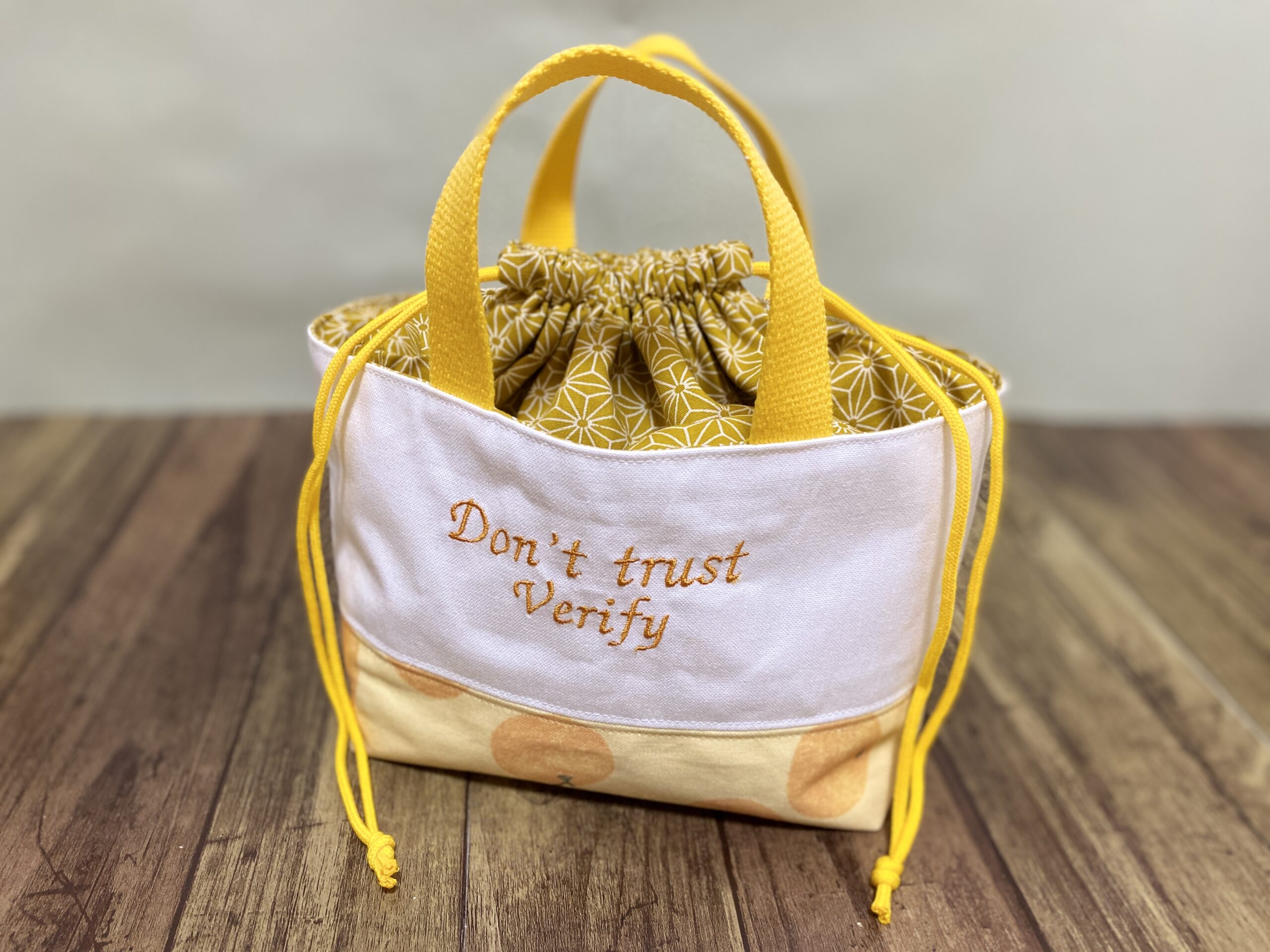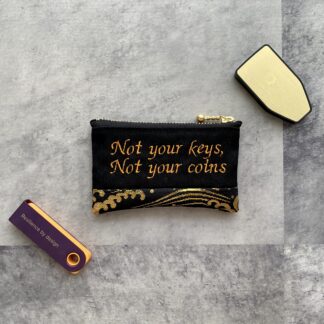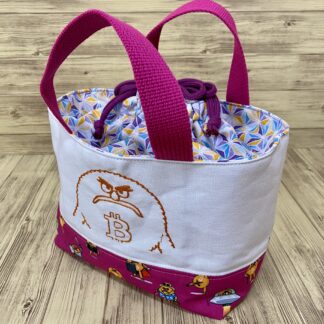Description
🌊Drawstring Lunch Bag🌊
This is a bento bag embroidered with Bitcoin sayings and memes.
I used a Mikan(mandarin orange)pattern fabric, I aimed to create goods that can be used on an everyday basis.
The sales site is scheduled to open in late June.#ProofOfHandmade pic.twitter.com/PSJBAI48vC
— Making Waves (@MakingWavesBTC) June 15, 2024
Drawing inspiration from Bitcoin and the color orange, I used fabric with a pattern of “Mikan,” a type of tangerine commonly enjoyed in Japan, and fabric featuring the “Asanoha” pattern, which evokes the appearance of an orange cross-section.
ビットコインとオレンジからイメージをふくらませて、日本で食べられている「みかん」柄の布と、オレンジの断面を思い起こさせる麻の葉文様の布を使用しました。
While this handmade item is inspired by Bitcoin, I aimed for a subtle design that is suitable for everyday use.
ビットコインのハンドメイドグッズでありつつ、日常使いできるような控えめなデザインを目指して作りました。
<Kinchaku/巾着>
A bag that opens and closes by pulling on drawstrings.
It has been used in Japan for centuries and is known as a “Drawstring Bag” overseas.
Traditionally, it was used to carry valuables, but nowadays, it is commonly used for everyday items like small accessories or lunch boxes.
ひもを引っ張ることで、口が閉じたり開いたりする袋。
日本で古くから使われており、海外では「Drawstring Bag」という名で用いられている。
昔は貴重品を持ち運ぶために使われており、現在は日常の小物やお弁当入れなど、様々な場面で使われている。
<Mikan/みかん>
Mikan is a type of mandarin orange, and many Japanese people think of mikan when they hear the word “orange.” It is a quintessential winter fruit in Japan, often enjoyed while sitting under a kotatsu, evoking the feeling of winter.
みかんはマンダリンオレンジの一種で、オレンジと聞くとみかんを連想する日本人は多い。
日本の冬における定番のフルーツで、こたつに入りながらみかんの皮をむいていると冬を実感できる。
<Asanoha pattern/麻の葉文様>
The Asanoha pattern is a geometric design made up of regular hexagons, named after the shape of hemp leaves. Hemp grows rapidly, and the Asanoha pattern has been traditionally used to symbolize the wish for growth.
麻の葉文様は正六角形の幾何学模様で、麻の葉の形に名前が由来する伝統的な文様。
麻は成長が早く、成長を願う意味で麻の葉模様が用いられることがある。
